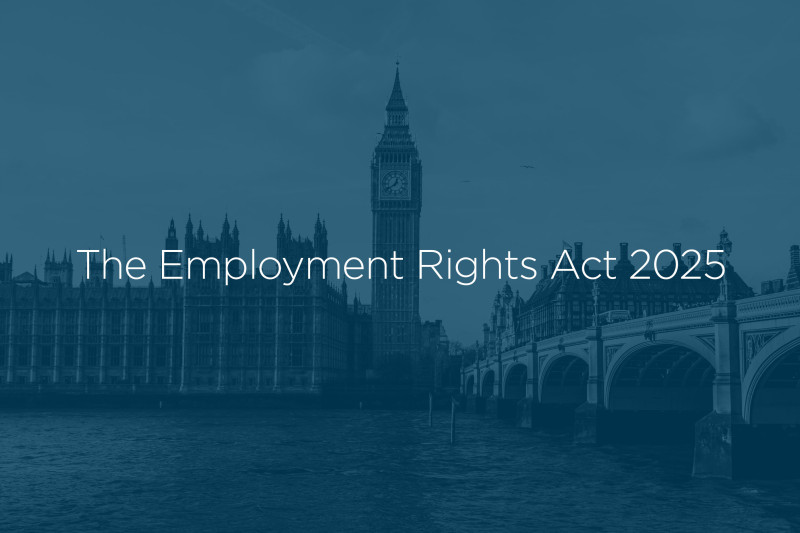The Employment Rights Act 2025 is expected to come into force tomorrow (18 December 2025)

The ERB is a significant piece of legislative upheaval and the road to getting here has been anything but smooth….
After an extended period of back-and-forth amendments between Parliament and the House of Lords (often referred to as ‘ping pong’), including some last-minute changes to the ERB and the timeline for implementation, there was a sense that the changes which had for so long been publicised may never actually materialise (or at least not this year!).
However, on 16 December 2025, the ERB finally received approval from the House of Lords – and with the formality of Royal Assent due to take place tomorrow (18 December 2025), we will have our new Employment Rights Act 2025 this year after all.
Whilst we could write thousands of words on all the various changes to come in, our ethos is to focus on what matters at the most appropriate time. That being the case, this piece focuses on the change on everyone’s lips, namely the change to the qualifying period for unfair dismissal rights, and the removal of the compensation cap.
That is, without doubt, the biggest last-minute change to the ERB. It was a Labour manifesto pledge to give employees the day one right to sue their employer for unfair dismissal, but this will now no longer be the case following an apparent U-turn.
Employees will require six months’ continuous service to bring an unfair dismissal claim, rather than the current two years. As usual, no qualifying period will apply where the dismissal is automatically unfair or discriminatory.
The ERB will also remove the compensation cap on unfair dismissal claims (which is currently the lower of either 52 weeks gross pay or £118,223). For obvious reasons, that will make it even more important for employers to get their dismissal processes legally and procedurally correct.
When?
The six-month qualifying period for protection from unfair dismissal will come into force on 1 January 2027. However, the reality is that businesses should really start taking steps to prepare for this change ahead of 1 July 2026 if they haven’t already done so, given that anyone employed from that date will reach six months’ service on 1 January 2027.
It is expected that the compensation cap for unfair dismissal claims will also be removed as of 1 January 2027, meaning anyone unfairly dismissed on or after that date would be entitled to unlimited compensation. However, the exact timing has not yet been confirmed.
How can you prepare?
- Ensure that your probationary period allows for a full review cycle well before the six-month point, rather than (as many employers do) relying on a meeting at six months only.
- Diarise probationary reviews at regular intervals; probably monthly.
- Ensure that probationary reviews are well documented with clear feedback and evidence, and followed up with training, mentoring, or performance plans early on if appropriate.
- Look at your notice provisions. You should carefully consider whether to shorten your notice requirements during probation, remembering if you fail to provide an employee with at least a weeks’ notice, that 1 week can be added to their period of continuous service for the purposes of obtaining unfair dismissal rights.
- PILON clauses will likely be required for all staff at any level, to prevent employees from inadvertently passing the 6-month limit simply by serving out their notice period.
- Review and tighten your recruitment process and procedures. Employers can much less afford to make the wrong hiring decisions moving forwards!
- Train your managers to help them identify issues early, and how to properly undertake the probationary review process throughout; waiting until month five is almost certainly too late to raise concerns.
If you would like any assistance with any of the steps above, please be in touch with the team via edisney@leathesprior.co.uk.
Of course, the employment team at Leathes Prior can advise on the steps to take on all the upcoming changes to the new law. Please click here to see our timeline of all changes, and when they are expected to come into force. If you would like advice on any of those changes, please do contact us and we will be glad to lead you through the legal changes and the practical steps you need to take to get ahead.
More generally, our approach is to advise on these changes ‘piece by piece’ as and when you need to think about them, rather than to try and tackle a monster load of changes all at once. If you would like to be added to our Little Pieces mailing list (free of charge) to help you prepare, please contact edisney@leathesprior.co.uk.
This article has been prepared for general information only and does not constitute legal advice. It has been created based on information available in December 2025. Specific legal advice should be taken in any specific circumstance.


